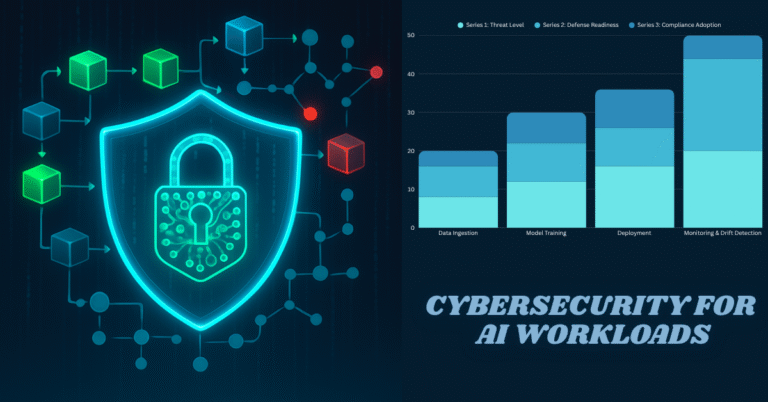
How Prompt Engineering is Redefining AI Model Performance in 2025
🔍 Introduction: Why Prompt Engineering Matters in 2025
Artificial Intelligence (AI) is only as good as the input you give it—especially when it comes to large language models (LLMs) like GPT-4, Claude, Gemini, and others. In 2025, prompt engineering has evolved into a core skill for developers, data scientists, and product teams alike.
From improving model accuracy to enabling new use cases, crafting the right prompt is now just as important as selecting the right model.
Need Fast Hosting? I Use Hostinger Business
This site runs on the Business Hosting Plan. It handles high traffic, includes NVMe storage, and makes my pages load instantly.
Get Up to 75% Off Hostinger →⚡ 30-Day Money-Back Guarantee
💡 What Is Prompt Engineering?
Prompt engineering is the art and science of crafting effective input queries to AI models—especially LLMs—to get accurate, reliable, and contextually relevant outputs.
Whether you’re building a chatbot, summarizing documents, writing code, or generating marketing copy, the way you prompt the model significantly influences its performance.
🔧 Why Prompt Engineering Is Changing the Game
Here’s how prompt engineering is redefining AI model performance in 2025:
1. 🎯 Improves Accuracy and Relevance
Smart prompt structures help reduce hallucinations and off-topic answers in LLMs.
Example:
Poor prompt: “Tell me something about JavaScript.”
Better prompt: “Write a beginner-friendly guide to JavaScript closures with examples.”
2. 🧠 Adds Domain-Specific Context
Prompt tuning can embed industry-specific knowledge (e.g., finance, healthcare, law) without needing to retrain the base model.
This helps bridge the gap between general AI and real-world applications.
3. ⚙️ Powers Low-Code/No-Code Automation
Prompt templates now enable business users to generate custom automations via platforms like Zapier AI, Microsoft Copilot, or Notion AI—without writing a single line of code.
4. 📈 Enhances Model Performance Without Retraining
Optimizing prompts is a cost-effective alternative to retraining models, saving compute resources and reducing deployment time.

🛠️ Prompt Engineering Techniques in 2025
Here are some top prompt techniques that are reshaping AI workflows today:
| Technique | Description | Example |
|---|---|---|
| Few-shot prompting | Give a few examples to guide the model | “Translate the following… [3 examples]” |
| Chain-of-thought prompting | Ask the model to “think step-by-step” | “Solve this math problem step by step…” |
| Instructional prompting | Use clear, specific instructions | “Summarize this text in bullet points under 100 words.” |
| System prompting | Set context via system-level messages | “You are a helpful legal assistant…” |
🚀 Real-World Use Cases of Prompt Engineering
Customer Support Automation
Fine-tuned prompts help LLMs provide accurate responses in customer-facing tools.Medical AI Applications
Prompt templates ensure safe, regulation-compliant summaries in healthcare.Useful Links
- Forget Selenium: Building AI Agents with browser-use & DeepSeek (The New 2026 Standard)
- The End of Localhost? Why Cloud Dev Environments (CDEs) Are Taking Over
- Cybersecurity for AI Workloads: Protecting ML Pipelines in 2025 and Beyond
- AI-Native Grads vs. Traditional Developers: The Talent War CEOs Are Betting On
- Google’s New Ranking Factor Is Quietly Killing Small Developer Blogs (2025 Guide)
- 📛 What Developers Should Stop Doing in 2025 (And What to Do Instead)
Content Generation
From writing SEO blogs to creating ad copy, good prompts directly influence the tone, format, and depth of generated content.Code Generation
Coders are now using AI more effectively by crafting contextual prompts that reference documentation, APIs, or user intent.
🧑💼 Who Should Learn Prompt Engineering?
Developers integrating AI into products
Data Scientists improving model outputs
Marketers and Writers using AI for content
Product Managers defining AI workflows
Educators using AI for tutoring and assessments
Even non-technical professionals benefit by learning how to talk to AI tools effectively.
🎯 Best Practices for Prompt Engineering
✅ Be specific — vague prompts lead to vague answers
✅ Include examples — guide the model with context
✅ Test variations — tweak and compare outputs
✅ Use delimiters — clearly define input vs. instructions
✅ Start simple — then layer complexity
📌 Final Thoughts
Prompt engineering is no longer a niche trick—it’s a must-have skill in the AI toolbox.
In 2025, those who master prompt design will unlock new levels of efficiency, automation, and creativity. Whether you’re building AI apps, training models, or just trying to write better code or content—prompts matter more than ever.
🔗 Explore More on DevTechInsights
👉 Top 10 Underrated JavaScript Libraries You Haven’t Heard Of (But Should Use)
👉 Coding Bootcamp vs. Self-Taught: What’s Better in 2025?

🚀 Let's Build Something Amazing Together
Hi, I'm Abdul Rehman Khan, founder of Dev Tech Insights & Dark Tech Insights. I specialize in turning ideas into fast, scalable, and modern web solutions. From startups to enterprises, I've helped teams launch products that grow.
- ⚡ Frontend Development (HTML, CSS, JavaScript)
- 📱 MVP Development (from idea to launch)
- 📱 Mobile & Web Apps (React, Next.js, Node.js)
- 📊 Streamlit Dashboards & AI Tools
- 🔍 SEO & Web Performance Optimization
- 🛠️ Custom WordPress & Plugin Development







